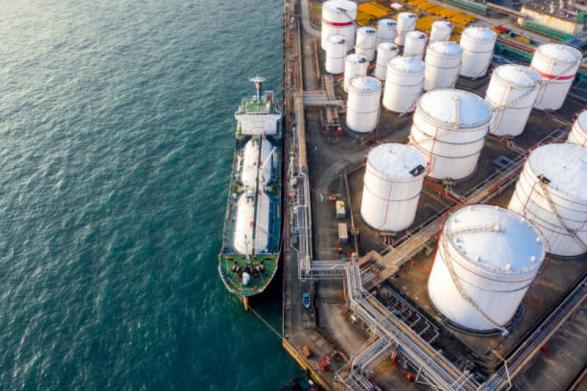The realm of crude oil and gas prices is a complex web of interconnecting factors and influences, including geopolitics, supply and demand, and even weather patterns. The prices of these commodities hold significant sway over global economies and can dramatically impact our everyday lives. This aims to unravel the intricate relationship between crude oil and gas prices, shedding light on the multiple variables that dictate their fluctuations. Through a meticulous exploration of this dynamic, we hope to provide a comprehensive understanding of this crucial aspect of the global energy market.
Overview of Crude Oil and Gas

Crude oil and gas are two of the most vital natural resources on Earth. They are both fossil fuels, formed from the remains of plants and animals that lived millions of years ago. These resources have played a crucial role in shaping human civilization, powering everything from transportation to manufacturing industries.
Crude oil is a liquid hydrocarbon that can be refined into various petroleum products such as gasoline, diesel, jet fuel, and heating oil. It is extracted from underground reservoirs through drilling and then transported via pipelines or tankers to refineries for processing.
Natural gas, on the other hand, is primarily composed of methane and is found alongside crude oil deposits. It can also be extracted independently from shale rock formations through a process called hydraulic fracturing or "fracking." Natural gas is commonly used for heating and electricity generation.
Factors Affecting Crude Oil Prices
The price of crude oil is determined by a combination of factors, including:
- Geopolitical Events: Political turmoil in major oil-producing countries such as Iraq, Iran, and Venezuela can disrupt the supply of crude oil and cause prices to spike.
- Supply and Demand: The basic economic principle of supply and demand greatly influences crude oil prices. When there is an increase in global demand or a decrease in supply, prices tend to rise. On the other hand, if there is a surplus of supply and low demand, prices may decline.
- OPEC Production Cuts: The Organization of Petroleum Exporting Countries (OPEC) is a group of major oil-producing nations that work together to control the supply and price of crude oil. When OPEC decides to cut production, it can lead to higher prices.
- Currency Fluctuations: Since crude oil is priced in US dollars, changes in exchange rates between currencies can affect the cost of purchasing and trading this commodity.
- Weather Patterns: Extreme weather events, such as hurricanes or polar vortexes, can disrupt oil production and transportation, causing price fluctuations.
Factors Affecting Natural Gas Prices
Similar to crude oil, the following factors also play a significant role in determining natural gas prices:
- Weather Conditions: Natural gas is heavily used for heating homes and buildings during winter months. Therefore, colder weather can cause an increase in demand and prices.
- Storage Levels: Natural gas storage levels impact the market's perception of supply and demand. Higher storage levels indicate excess supply, leading to lower prices, while lower storage levels suggest a tight market and higher prices.
- Economic Growth: A strong economy typically leads to increased industrial activity, resulting in a rise in natural gas demand and prices.
- Technological Advancements: Advances in drilling technology, such as fracking, have led to an increase in natural gas supply, which has driven down prices in recent years.
- Government Regulations: Policies and regulations surrounding the production, transportation, and export of natural gas can impact its price.
The Interconnected Relationship between Crude Oil and Gas Prices

Crude oil and gas prices are highly correlated, as they both compete for a share of the energy market. Changes in crude oil prices can affect natural gas prices, and vice versa. For instance, an increase in natural gas supply from fracking has led to lower prices, which has also caused some consumers to switch from using more expensive heating oil to natural gas. As a result, the demand for crude oil has decreased, causing its prices to drop. Additionally, when crude oil prices go up, there is an incentive for natural gas producers to increase their supply since it can be used as a substitute for crude oil in certain industries.
The Role of OPEC in Crude Oil and Gas Prices
Since its establishment in 1960, OPEC has been a dominant force in the global crude oil market. The organization is responsible for approximately 40% of the world's crude oil production, giving it significant leverage over prices. When OPEC decides to cut or increase production, it can have a considerable impact on crude oil prices and subsequently affect natural gas prices.
However, in recent years, the emergence of new players in the oil and gas market, such as the United States with its booming shale industry, has challenged OPEC's dominance. This has led to a power struggle between OPEC and non-OPEC producers, resulting in fluctuations in crude oil prices.
Current Trends and Future Predictions
The oil and gas industry is constantly evolving, with new technologies and global events shaping its trajectory. Currently, there is a push towards renewable energy sources, such as solar and wind power, which has led to a decline in demand for fossil fuels. However, it is predicted that the demand for oil and gas will continue to be high in the coming decades due to their crucial role in the global energy market.
Future predictions also indicate that OPEC will continue to play a significant role in crude oil and gas prices, despite challenges from non-OPEC producers. However, with the increasing focus on sustainable energy and climate change policies, it is expected that there will be a shift towards cleaner alternatives in the long run. This could lead to a decline in the influence of OPEC and traditional fossil fuels in the global energy market. Overall, the prices of crude oil and natural gas will continue to be influenced by a complex web of factors, making them highly volatile commodities in the world economy.
Conclusion
Crude oil and natural gas are vital sources of energy that have a considerable impact on the global economy. The prices of these commodities are determined by various factors, including geopolitical events, supply and demand, OPEC production cuts, currency fluctuations, weather patterns, economic growth, technological advancements and government regulations. These factors also play an interconnected role in influencing each other's prices. As the world moves towards a more sustainable future, it is expected that there will be changes in the dynamics of the oil and gas industry, but their importance in powering our daily lives cannot be denied. So, it is crucial to closely monitor and understand the factors affecting crude oil and natural gas prices to make informed decisions in this ever-changing market.




